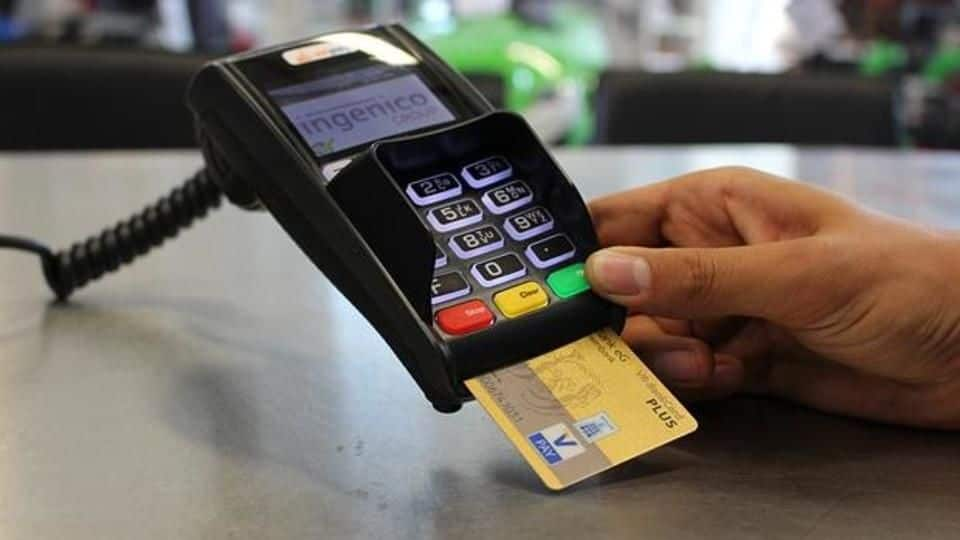No charges on card transactions upto Rs. 2,000 from January
What's the story
Starting January 1, 2018, you won't have to pay transaction fees on debit card payments of up to Rs. 2,000 for two years.
The Cabinet has said the Merchant Discount Rate (MDR) will be reimbursed to banks by the government during the period.
This is yet another move by the government to push the economy towards a cashless system.
Twitter Post
'Govt to reimburse MDR charges on digital payments upto Rs.2,000'
#Cabinet has decided that Government of India will reimburse the MDR charges levied on digital payments upto Rs. 2000 made through debit cards, #BHIM-UPI and #Aadhaar Pay. This will boost the digital payments in India.
— Ravi Shankar Prasad (@rsprasad) December 15, 2017
About
What is the MDR?
The MDR is a charge levied on merchants for enabling customer payments through point of sale (PoS) machines, UPI and AePS at their establishment.
Since it would otherwise eat into their margins, merchants inevitably pass the MDR on to consumers.
Earlier this year, the RBI fixed MDR on debit card payments for transactions up to Rs. 1,000 at 0.25% and 0.5% for Rs. 1,000-2,000.
Charge
How much does the MDR cost merchants?
MDR charges on debit card transactions for small merchants with annual turnover of up to Rs. 20L has been fixed at 0.4%, capped at Rs. 200 per transaction.
For bigger merchants, it is 0.9%, capped at Rs. 1,000.
For QR code-based infrastructure, MDR for small merchants is 0.3%, capped at Rs. 200. For bigger ones, it is 0.8%, capped at Rs. 1,000.
Data
MDR removal to cost government Rs. 2,500cr in two years
The government will now reimburse banks the MDR lost for the next two years. "It is estimated that the MDR to be reimbursed...would be Rs. 1,050cr in FY 2018-19 and Rs. 1,462cr in FY 2019-20," it said in a release.
Value
Debit card usage has tripled from 2014-15 to 2016-17
Debit card usage has reportedly increased from 800mn transactions in 2014-15 to 2.4bn transactions in 2016-17.
During the same period, the value of such transactions rose from Rs. 1.2L crore to Rs. 3.3.L crore.
In the year post demonetization, debit/credit card transactions on PoS machines increased from Rs. 35,240cr (November'16) to Rs. 47,980cr (November'17).
